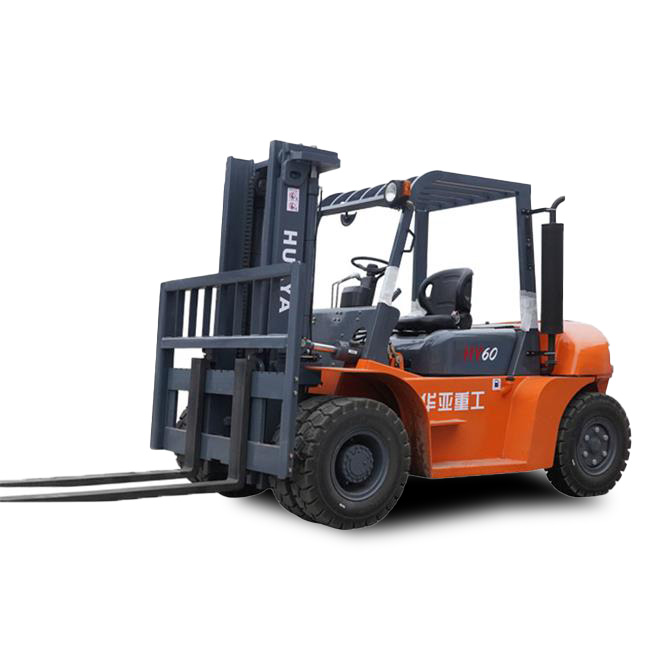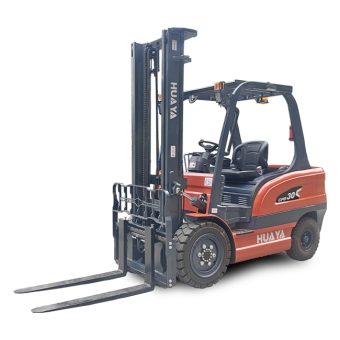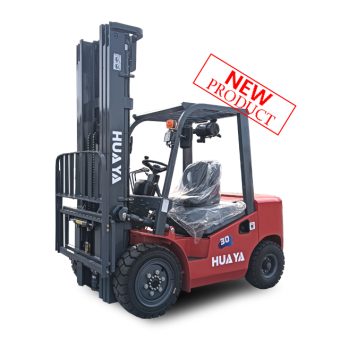
News
Forklifts, the workhorses of warehouses and industrial settings, play a pivotal role in material handling. One often overlooked aspect of these machines is the fuel that powers them. In this article, we will delve into the various fuels forklifts use, exploring their characteristics, advantages, and disadvantages. Buckle up as we uncover the secrets behind the energy that keeps forklifts in motion.

Electric forklifts have gained popularity due to their eco-friendly nature and quiet operation. Powered by rechargeable batteries, they emit zero emissions and are suitable for indoor use.
Zero Emissions: Ideal for eco-conscious warehouses.
Quiet Operation: Reduced noise pollution in the workplace.
Lower Operating Costs: Electricity is often more economical than traditional fuels.
Limited Run Time: Requires recharging, leading to downtime.
Initial Cost: Higher upfront investment compared to some alternatives.
Internal combustion engines, particularly those fueled by gasoline, are a conventional choice for forklifts.
Gasoline-powered forklifts offer a versatile solution for various applications. With a robust performance, they are well-suited for outdoor tasks.
High Performance: Suitable for heavy-duty tasks.
Quick Refueling: Faster refueling compared to electric recharging.
Cost-Effective: Lower upfront cost compared to electric counterparts.
Emissions: Produce emissions harmful to the environment.
Noise Level: Higher noise levels during operation.
Diesel: Powering Through Efficiency
Diesel forklifts are renowned for their power and efficiency, making them a preferred choice for demanding industrial settings.
High Torque: Efficient for heavy loads and tough terrains.
Fuel Efficiency: Longer run time per tank compared to gasoline.
Durability: Robust and suitable for outdoor use.
Emissions: Similar to gasoline, emits pollutants.
Maintenance Costs: Diesel engines may incur higher maintenance costs.
Propane: Clean and Versatile
Propane forklifts strike a balance between electric and traditional fuel options. They are clean-burning and suitable for both indoor and outdoor use.
Clean Emissions: Environmentally friendly with fewer pollutants.
Versatility: Suitable for various applications.
Refueling Convenience: Quick and easy refueling process.
Fuel Storage: Requires dedicated storage for propane tanks.
Availability: Propane may not be as readily available as other fuels.
Hydrogen: A Glimpse into the Future
Hydrogen-powered forklifts represent the cutting edge of technology, offering a glimpse into a more sustainable future.
Zero Emissions: Environmentally friendly with no harmful emissions.
Quick Refueling: Comparable to traditional fuels.
Reduced Maintenance: Fewer moving parts result in lower maintenance needs.
Infrastructure: Limited hydrogen refueling infrastructure.
Cost: Higher initial investment compared to traditional options.
Choosing the right fuel for your forklift depends on various factors. Consider your operational needs, budget, and environmental concerns to make an informed decision.
As environmental consciousness grows, businesses are increasingly adopting eco-friendly forklift options. Electric and hydrogen forklifts are becoming the preferred choices to minimize carbon footprints.
Regular maintenance is crucial for forklift longevity. Each fuel type has unique maintenance requirements, so understanding and adhering to them is key.
Beyond the initial investment, operational costs play a significant role in forklift fuel selection. Compare fuel prices, efficiency, and maintenance costs to determine the most economical choice.
Safety is paramount when dealing with forklift fuels. Proper handling, storage, and maintenance practices are essential to prevent accidents and ensure a secure working environment.
As technology advances, new innovations in forklift fuel are emerging. Stay informed about the latest trends and technologies to optimize your fleet's performance.
The forklift industry is evolving rapidly. Keep an eye on emerging trends such as alternative fuels, automation, and enhanced safety features to stay ahead in the game.
Yes, in many cases, forklifts can be converted to different fuel types. However, it's crucial to consult with professionals to assess feasibility and potential challenges.
While electric forklifts are generally designed for indoor use, some models are suitable for outdoor applications. Consider factors like terrain and weather conditions before making a decision.
Propane forklifts require regular inspections, including checking for leaks and ensuring proper tank storage. Following manufacturer guidelines for maintenance is crucial.
Hydrogen fuel availability is limited compared to traditional fuels. Before investing in hydrogen-powered forklifts, ensure there is a reliable refueling infrastructure in your area.
Hydrogen-powered forklifts produce zero emissions, contributing to a cleaner and greener working environment. They are a sustainable choice for businesses prioritizing environmental responsibility.

